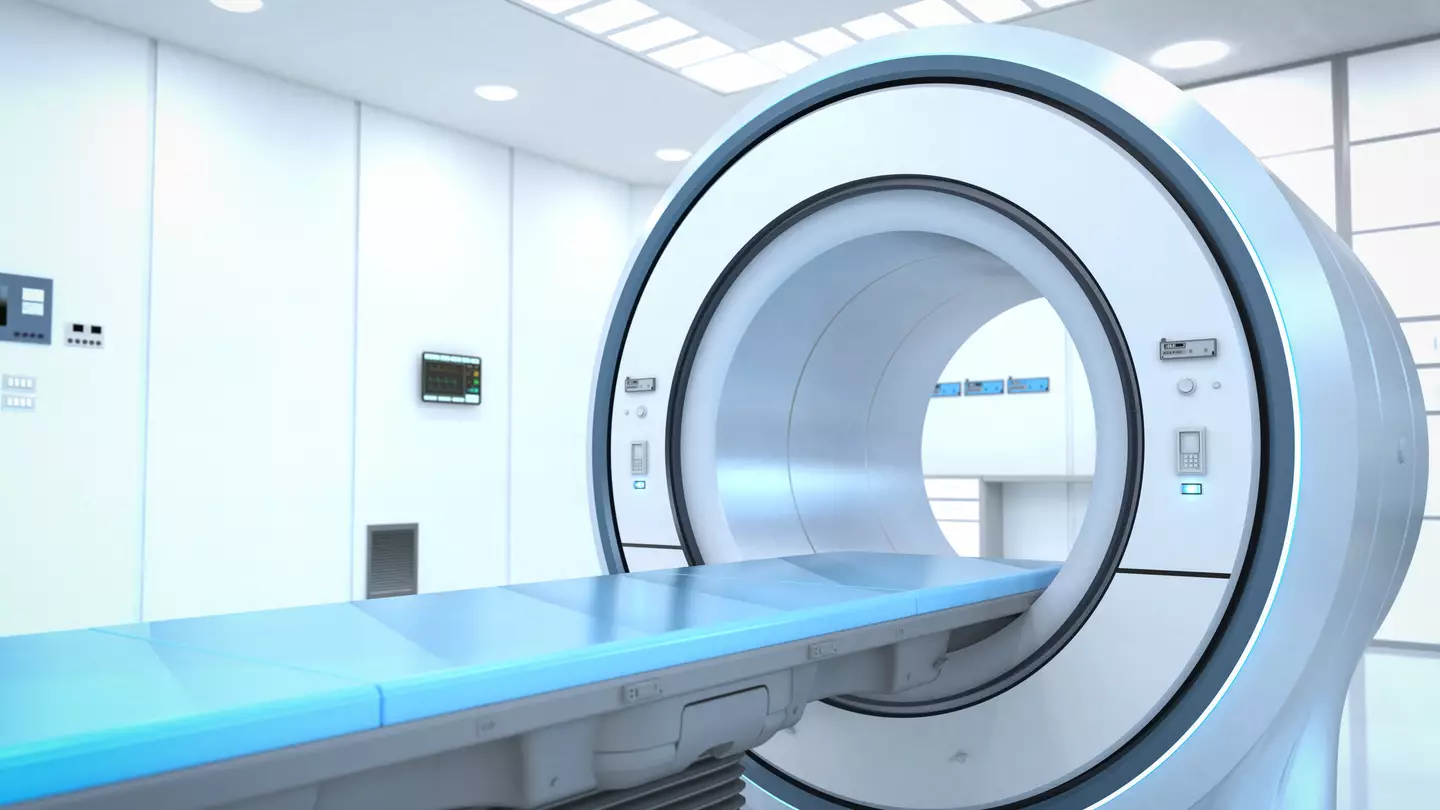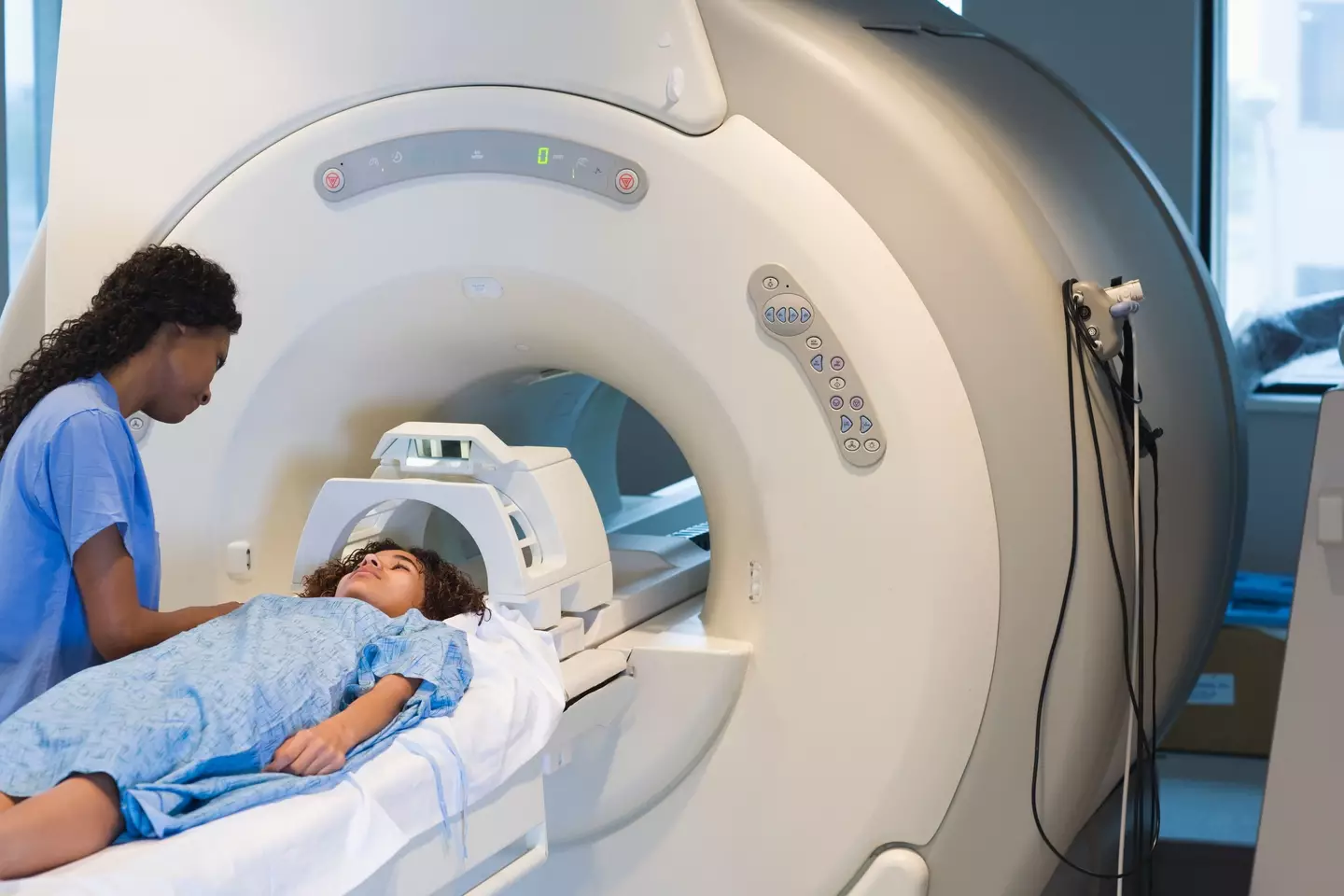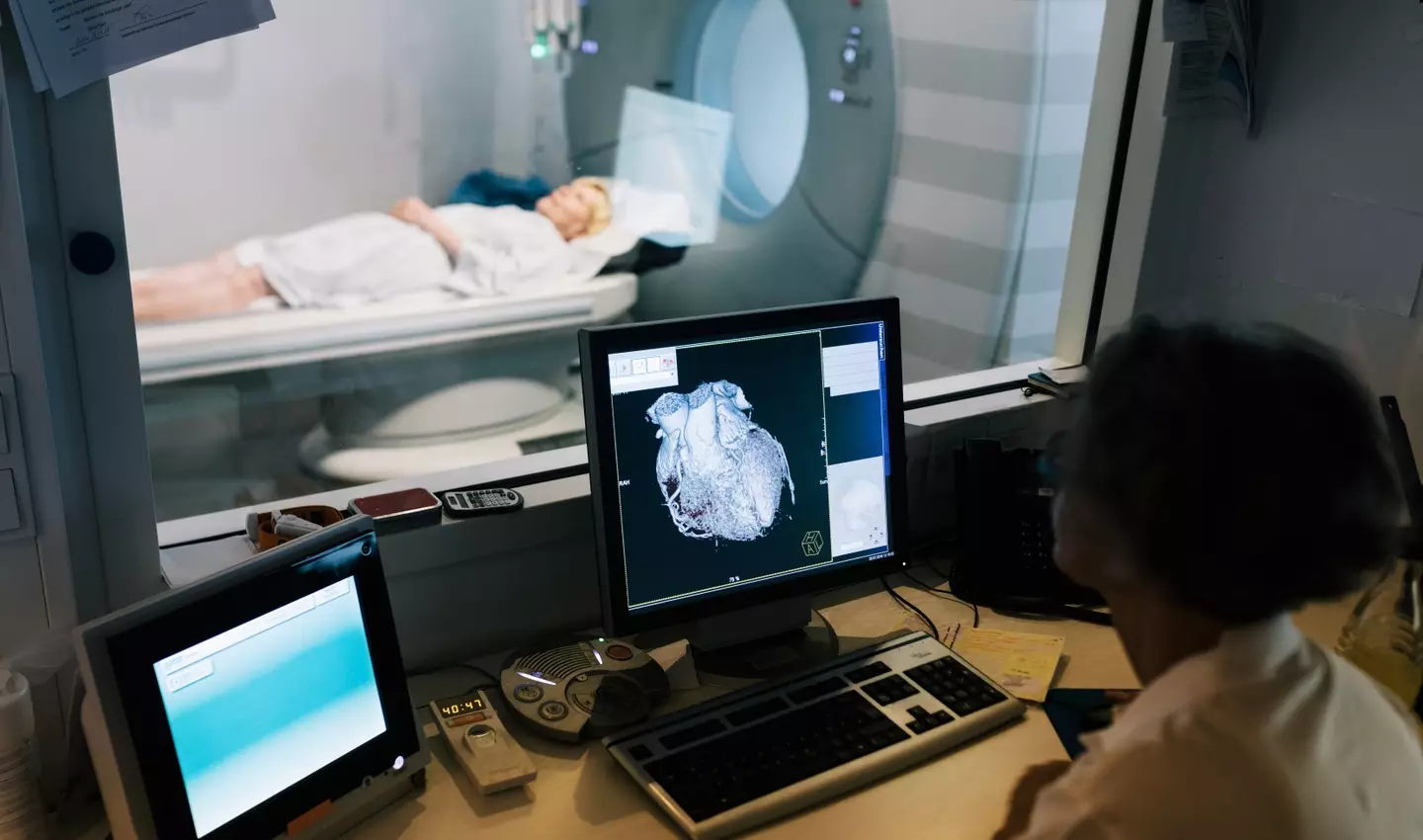
A man has passed away after being sucked into an MRI machine while wearing a long metal necklace.
The 61-year-old, who has not yet been publicly identified, was dragged inside the magnetic resonance imaging (MRI) machine at a private facility in Long Island, New York.
He entered an exam room where a scan was in progress on Wednesday (16 July) afternoon when horror struck, according to the Nassau County Police Department.
The force explained that they received a 911 call alerting them to the fact that a man had 'entered an unauthorised MRI room while the scan was in progress'.
Advert
Fatefully, the bloke was wearing a 'large metallic chain around his neck', which resulted in him being 'drawn into the machine' due to its powerful magnetic force, police said.
This led to him suffering what was described as a 'medical episode', before he was rushed to a local hospital in critical condition.

The 61-year-old died from his injuries on Thursday (17 July). Details of his death remain undisclosed.
An investigation into the incident has been launched by local police in an effort to determine why the man entered the room while an MRI scan was in progress.
Although the machines are a medical marvel, they can also be extremely dangerous due to the strong magnets that are packed inside the scanner.
The NHS explains that they work by using 'strong magnetic fields and radio waves to produce detailed images of the inside of the body'.
Patients lie down inside the tube during the scan, which can intricately analyse almost every part of the body. Doctors can help determine the state of the brain, spinal cord, bones, joints, heart, blood vessels, internal organs, and a host of other things thanks to MRI scans.
A radiographer monitors the scan on a computer in a separate room, which is essential, as devices must stay far away from the magnetic field generated by the scanner.

The force of it is so powerful that it is 'strong enough to fling a wheelchair across the room', according to the National Institute of Biomedical Imaging and Bioengineering. This is because 'very powerful forces' are exerted on objects made of iron, some steels, and other magnetic materials when the scan is in progress.
The NHS advises patients to remove any metal objects from their body before an MRI scan, including watches, jewelry, piercings, dentures, hearing aids, and even wigs, as these can sometimes contain traces of metal.
You should also wear clothes that don't have metal zips, fasteners, buttons, underwire (bras), belts, or buckles if you're not getting into a hospital gown.
However, the NHS insists that an MRI scan is a 'painless and safe procedure'.
Doctor Payal Sud, who works at the nearby North Shore University Hospital, shared his thoughts on what he thought might have gone down in the exam room earlier this week.
"If this was a chain that was wrapped around the neck, I could imagine any kind of strangulation injuries that could happen, asphyxiation, cervical spine injuries if the patient was slams against the MRI, you know, any kind of blunt force trauma that we can think about could happen." he said to ABC7.